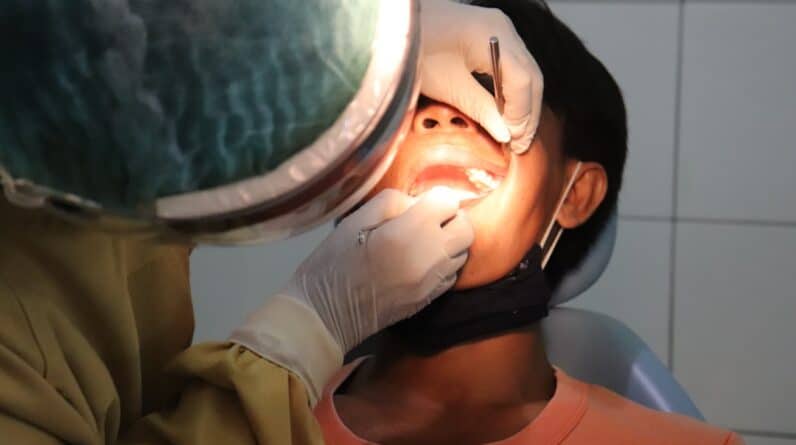When considering Lasik surgery, the choice of surgeon is paramount. You want to ensure that you are placing your vision in the hands of a qualified professional. Start by looking for a surgeon who is board-certified and specializes in refractive surgery.
This certification indicates that the surgeon has undergone rigorous training and adheres to high standards of practice. Additionally, you should seek out a surgeon who has extensive experience specifically with Lasik procedures. A surgeon who has performed thousands of surgeries is likely to have honed their skills and can handle a variety of situations that may arise during the procedure.
Another critical factor to consider is the surgeon’s approach to patient care. You should feel comfortable asking questions and discussing your concerns. A good surgeon will take the time to explain the procedure, discuss potential risks, and outline what you can expect during recovery.
Look for a surgeon who prioritizes patient education and takes a personalized approach to treatment. This level of care can significantly impact your overall experience and satisfaction with the procedure.
Key Takeaways
- Look for a Lasik surgeon with board certification and extensive experience in the field
- The importance of choosing a surgeon with a proven track record and positive patient testimonials
- Understanding the advanced technology and equipment used in Lasik surgery for better outcomes
- When choosing a Lasik surgeon in Frisco, TX, consider the benefits of selecting a local specialist
- What to expect during a consultation with a Lasik surgeon, including thorough evaluations and personalized treatment plans
The Importance of Experience and Credentials
Experience is one of the most significant factors when selecting a Lasik surgeon. A surgeon with years of practice will have encountered a wide range of cases, which equips them with the knowledge to handle any complications that may arise. You should inquire about the number of procedures the surgeon has performed and their success rates.
A high volume of surgeries often correlates with better outcomes, as seasoned surgeons are more adept at navigating the intricacies of the procedure. Credentials also play a vital role in your decision-making process. Look for surgeons who are affiliated with reputable medical institutions or organizations dedicated to eye care.
Membership in professional associations, such as the American Academy of Ophthalmology or the American Society of Cataract and Refractive Surgery, can indicate a commitment to ongoing education and adherence to best practices. These credentials not only reflect the surgeon’s qualifications but also their dedication to staying current with advancements in technology and techniques.
Understanding the Technology Used in Lasik Surgery

The technology employed in Lasik surgery has evolved significantly over the years, making it essential for you to understand what is available. Modern Lasik procedures often utilize advanced laser systems that enhance precision and safety. For instance, wavefront-guided Lasik uses detailed measurements of your eye’s unique characteristics to create a customized treatment plan.
This technology can lead to improved visual outcomes and reduced side effects compared to traditional methods. Additionally, you should inquire about the type of laser used during the procedure. Femtosecond lasers, for example, are known for their accuracy and ability to create corneal flaps with minimal disruption to surrounding tissue.
Understanding these technologies can help you feel more confident in your decision-making process. A knowledgeable surgeon will be able to explain how these advancements can benefit your specific situation and improve your overall experience.
How to Choose the Best Lasik Surgeon in Frisco, TX
Choosing the best Lasik surgeon in Frisco, TX, involves thorough research and consideration of various factors. Start by seeking recommendations from friends, family, or your primary care physician. Personal experiences can provide valuable insights into a surgeon’s skills and bedside manner.
Once you have a list of potential candidates, delve into online reviews and testimonials to gauge patient satisfaction. After narrowing down your options, schedule consultations with each surgeon on your list. During these meetings, pay attention to how comfortable you feel discussing your concerns and asking questions.
A good surgeon will take the time to address your inquiries and provide clear explanations about the procedure and its risks. Trust your instincts; if you feel uneasy or rushed during a consultation, it may be a sign to continue your search for a more suitable option.
The Benefits of Choosing a Local Surgeon
Opting for a local Lasik surgeon offers several advantages that can enhance your overall experience. Proximity means that you can easily attend consultations, pre-operative appointments, and follow-up visits without the added stress of long travel times. This convenience can be particularly beneficial if you have questions or concerns that arise during your recovery period.
Moreover, local surgeons often have established relationships within the community, which can foster a sense of trust and familiarity. You may find that they are more invested in providing personalized care tailored to your needs. Additionally, local surgeons are likely to be familiar with regional health regulations and standards, ensuring that they adhere to best practices in their field.
What to Expect During a Consultation with a Lasik Surgeon

Your initial consultation with a Lasik surgeon is an essential step in the decision-making process. During this appointment, you can expect a comprehensive eye examination that assesses your vision and overall eye health. The surgeon will evaluate factors such as corneal thickness, pupil size, and any existing eye conditions that may affect your candidacy for Lasik surgery.
In addition to the examination, this consultation is an opportunity for you to ask questions about the procedure, recovery process, and potential risks involved. A reputable surgeon will take the time to explain each aspect thoroughly and ensure that you feel informed and comfortable moving forward. This dialogue is crucial for establishing trust and understanding between you and your surgeon.
The Risks and Potential Complications of Lasik Surgery
While Lasik surgery is generally considered safe, it is essential to be aware of the potential risks and complications associated with the procedure. Common side effects include dry eyes, glare, halos around lights, and fluctuating vision during the initial recovery period. These symptoms often resolve over time but can be concerning for some patients.
In rare cases, more severe complications may occur, such as infection or vision loss. It is crucial to discuss these risks openly with your surgeon during your consultation. A qualified surgeon will provide you with realistic expectations regarding outcomes and address any concerns you may have about potential complications.
How to Prepare for Lasik Surgery
Preparing for Lasik surgery involves several steps that can help ensure a smooth experience on the day of the procedure. First and foremost, follow any pre-operative instructions provided by your surgeon carefully. This may include avoiding contact lenses for a specified period before surgery or refraining from certain medications that could affect healing.
Additionally, consider arranging for someone to drive you home after the procedure, as your vision may be temporarily impaired immediately following surgery. It’s also wise to plan for some downtime post-surgery; while many patients return to normal activities within a day or two, allowing yourself time to rest can aid in recovery.
Post-Operative Care and Recovery
Post-operative care is crucial for achieving optimal results after Lasik surgery. Your surgeon will provide specific instructions on how to care for your eyes during the recovery period. This may include using prescribed eye drops to prevent dryness or inflammation and avoiding activities that could strain your eyes.
During the first few days after surgery, it’s essential to monitor your vision closely and report any unusual symptoms to your surgeon immediately. While many patients experience significant improvement in their vision within 24 hours, some may take longer to fully recover. Patience is key; following your surgeon’s guidelines will help ensure a successful outcome.
The Success Rate of Lasik Surgery
Lasik surgery boasts an impressive success rate, with studies indicating that over 90% of patients achieve 20/25 vision or better after the procedure. This high level of satisfaction is attributed to advancements in technology and techniques that have improved outcomes over the years. However, individual results can vary based on factors such as age, eye health, and adherence to post-operative care.
It’s important to have realistic expectations when considering Lasik surgery. While many patients enjoy excellent vision post-surgery, some may still require glasses or contact lenses for specific tasks like reading or driving at night. Discussing these possibilities with your surgeon can help you understand what results you can anticipate based on your unique circumstances.
Testimonials and Reviews from Previous Patients
Reading testimonials and reviews from previous patients can provide valuable insights into what you can expect from a particular Lasik surgeon or clinic. Many patients share their experiences regarding not only their surgical outcomes but also their interactions with staff and overall satisfaction with care received throughout the process. Look for reviews that detail both positive experiences and any challenges faced during recovery; this balanced perspective can help you make an informed decision about which surgeon aligns best with your needs.
Engaging with patient communities online or seeking out local support groups can also offer additional perspectives on choosing a Lasik surgeon who prioritizes patient care and successful outcomes. In conclusion, selecting the right Lasik surgeon involves careful consideration of various factors including experience, technology used, local options, and patient feedback. By taking the time to research thoroughly and engage in open discussions with potential surgeons, you can make an informed decision that prioritizes your vision health and overall satisfaction with the procedure.
FAQs
What is LASIK surgery?
LASIK (Laser-Assisted In Situ Keratomileusis) is a popular surgical procedure used to correct vision problems, such as nearsightedness, farsightedness, and astigmatism. It involves reshaping the cornea using a laser to improve the way light is focused on the retina.
How do I choose the best LASIK surgeon in Frisco, TX?
When choosing a LASIK surgeon in Frisco, TX, it’s important to consider their experience, qualifications, and track record of successful surgeries. Look for a surgeon who is board-certified, has a good reputation, and uses the latest technology for LASIK procedures.
What are the benefits of choosing the best LASIK surgeon in Frisco, TX?
Choosing the best LASIK surgeon in Frisco, TX can increase the likelihood of a successful outcome and reduce the risk of complications. A skilled and experienced surgeon can also provide personalized care and use advanced techniques to achieve optimal results.
What should I expect during a consultation with a LASIK surgeon in Frisco, TX?
During a consultation with a LASIK surgeon in Frisco, TX, you can expect to undergo a comprehensive eye examination to determine your candidacy for LASIK surgery. The surgeon will discuss the procedure, potential risks, expected outcomes, and answer any questions you may have.
What is the recovery process like after LASIK surgery?
After LASIK surgery, patients may experience some discomfort, dryness, and blurry vision for a few days. Most patients can return to normal activities within a day or two, but it may take several weeks for vision to fully stabilize. Follow-up appointments with the surgeon are important to monitor the healing process.






